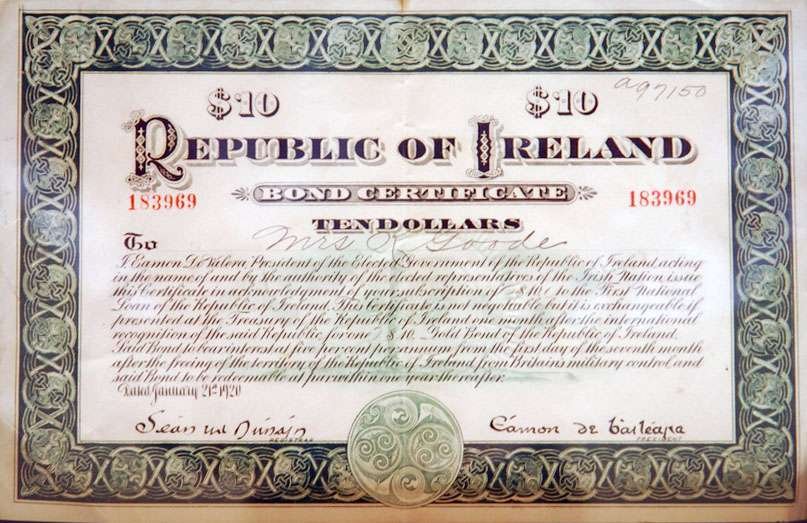
What is a bond?
A bond is an investment that gives a constant and fixed income. In other words, we can define it as a loan that the investor gives to a company or government by fixing the maturity date. The issuer has to pay back the bond investment when the end date comes.
Most of the biggest companies and governments issue bonds to raise funds. The bond prices change when the interest rate is changed. When interest rates are high, its prices drop. On the flip side, the prices go up when interest rates are low.
How do bonds work?
Bonds are most commonly referred to as fixed-income securities, in which the individual invests with cash. When companies want to raise money for financing projects, they may issue bonds. The government bond investment contains the interest rate, the face value, the terms of the loan, and the maturity date. The investors buy bonds by giving money to the companies for their big projects.
The interest payment that the government or firm issuing the bonds must pay is the only source of income for investors. Because they loan their funds to the issuer. The interest payment is actually a coupon payment that issuers have to pay the investor for the time the investor holds the bond.
The issuer of the bond must be financially stable and should be creditworthy. The starting price of the bond is set at $1000, but it doesn’t remain the same. As bond prices depend on different factors like the interest rate, the issue’s financial position, and the time until bonds mature,
The magical aspect of bonds is that the bondholders don’t have to wait for the maturity date if they need money. They can sell the bond to the individual before the maturity date. The bond’s price may change due to various factors, such as the interest rate, economic conditions, and currency changes. This feature gives flexibility to the bondholder.
However, when the maturity date comes, the issuers have to pay back the face value to the bondholder. Overall, bondholders invest to earn money by lending, and entities want to raise the funds.
Terminology used for bonds:
To better understand the bond market, some terms should be known to everyone in this field. There are different terminologies that are used in the bond market.
Coupon:
The interest that the issuer has to pay to the bondholder is a coupon. It is paid according to the schedule confirmed when the investor buys the bond. They might be paid every month or year.
Face Value:
Face value is the amount at which the bond is issued. The face value is payback to the investor at maturity.
Maturity:
Maturity is a date on which all the principal amounts of bondholders are returned and the coupon payments of bondholders are stopped.
Yield to maturity:
Yield to maturity is a specific type of bond yield that measures the total amount of money that the investor gets if the bond is not sold to another person. The maturity yield includes the interest payments, face value (principal), and how much time is left. It measures the yearly average profit that investors might get. It is represented in percentages.
Market value:
Market value is basically the cost at which the bond is sold in the open the market. The market value of a bond might change because it depends on the economic condition and interest rate.
Categories of Bond:
There are four categories of bonds that are sold in the market.
Government Bond:
Government bonds are like treasures that the government issues in the form of different packages. The bonds issued by the government with less than a year of maturity are known as “Bills”. The “Notes” term is used when the deal is done for a year or 10 years. The long-term deal of more than 10 years is called “Bonds”. While the term “treasuries” refers commonly to the bonds issued by the government, the financial standing of the country may affect the interest rates on the bonds.
Corporate Bonds:
The companies issue the corporate bond. The reason behind this is that the companies want to raise money without going to get the bank’s loans. In this way, they issue corporate bonds to get investments from individuals. In turn, they have to pay back the price with some interest rates.
Municipal Bond:
The municipal bonds are issued by the local governments. These types of bonds are basically used for building roads and schools. The amazing factor of is that the profit earned by the investors is often tax-free.
Green Bonds:
Green bonds are a different way to invest. When the investor buys them, they don’t only get the interest payments but also contribute to the environment. Different companies and institutes issue these kinds of bonds for the betterment of the environment and to make the earth green. Before investing in the green bond, make sure that the project is not fake.
Factors Affecting Bond Prices:
Although bonds give many benefits to investors, they are also affected by different factors.
Interest Rates:
The interest rate mainly affects bond prices. There is an inverse relationship between the interest rate and its prices. When the interest rate is high, the price fall because the newer bond gets more attention. On the other hand, when the interest rate falls, the prices become high due to more coupon payments, and the existing one becomes valuable.
Credit quality:
The creditworthiness of the issuer is very important. If the issuer is financially stable, investors feel safe about their money, and the bond price increases. If the issuer doesn’t have a good reputation, the price goes down because investors are cautious about the payback of their investment.
Maturity Date:
The maturity date is the end date on which the issuer has to pay back the money to the investor. If the deal is long-term, the price will be affected. Investors want more money when they buy bonds for the long term. This happens because the bond price goes through many factors, like interest rates, economic conditions, and currency changes. All these factors might change the value of the bond; for that reason, the long-term maturity date affects the its price.
Currency fluctuation:
Currency fluctuation occurs when someone buys an international bond. When the currency of the country in which you bought a bond changes, its price also changes. The fluctuation of currency made the bond more valuable or less attractive. So, you should be cautious about the economic condition of the country in which you are going to buy bonds.
Conclusion:
The bond is a great investment that gives you profit, but the thing to be considered more seriously is the way you bought it. If the bond is issued by a company with a good reputation or the government, it will give you a profit, but on the flip side, it will take you at a big loss. In this regard, you can get help from the experts as well.




